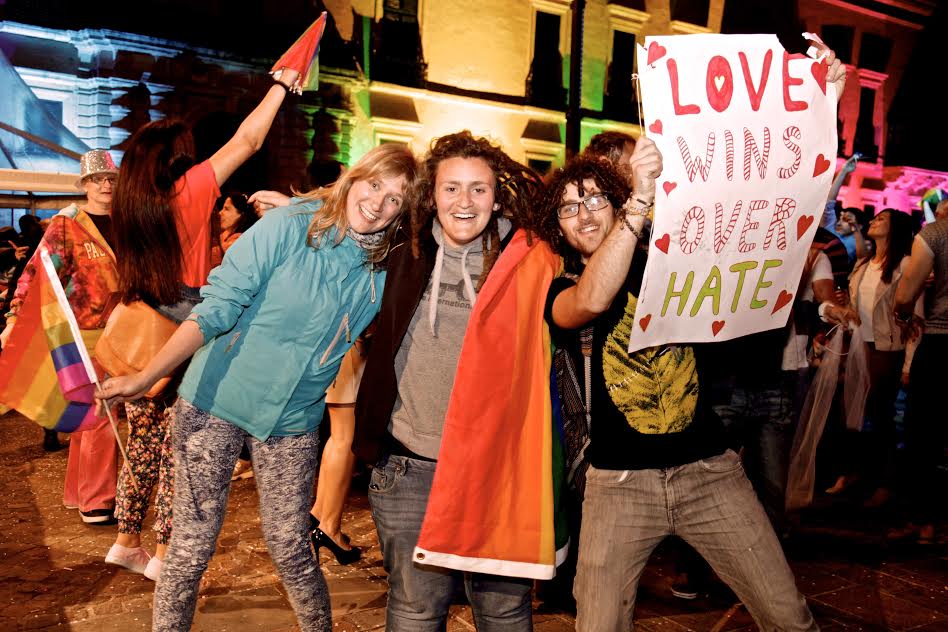“I would say that whoever thinks that conversion therapy is right, is trying to force the entire population into a mould that not everyone fits into.”
In a time when newly-elected leaders of the United States – Donald Trump and Mike Pence – are in favour of gay conversion therapy, not all hopes for the global LGBTQ community are lost.
In December 2016, Malta passed a law declaring conversion therapy illegal, with fines up to 10,000 euros and short sentences in jail for anyone found guilty. Becoming the first European country to ban conversion therapy, Malta proved to be one step ahead of the rest.
Behind the ban are names that have been left out of mainstream media all over the world. Gabi Calleja, Coordinator for Malta Gay Rights Movement (MGRM) and Chair of LGBTIQ Consultant Council, is one of many people who campaigned to achieve equality for Malta’s LGBTQ community
Gabi explained that the conversion therapy campaign started a couple of years ago, when a pastor was discovered carrying out conversion practices.
“Since 2004, we’ve had a few cases of young people who had come to us because they experienced some sort of conversion practices so it was on our agenda… And when the ministry expressed an interest in working on this we were involved in the initiative.”
Celebrating the ban on gay conversion therapy
The IPF spoke to young people in Malta to understand more about this small, but progressive, population. Eman Borg, President of the Gay Straight Alliance (GSA) at Malta College of Arts, Science and Technology (MCAST) and activist with LGBTI+ Gozo, said that up to five years ago Malta was a strict, conservative country where being gay was a huge taboo.
The 21-year-old said: “Now we are the first in Europe to actually have gay conversion therapy criminalised as a legal offence, which gives me a lot of pride to say that I am Maltese.”
In the past, Rebecca Xiberras, member of the campaign group LGBTI + Gozo, has been advised to undergo conversion therapy.“I was volunteering at this home that sheltered single mothers and when I told the Director she told me… to try to change it and go in the right path,” the 21-year-old explained.
“I felt like I wasn’t accepted, at the time I was still dealing with it [sexuality] myself, therefore I felt like I did something wrong, I wish I could be normal so I think that just the suggestion made me feel like I was lacking something.”
The practice of conversion therapy consists in psychological treatment designed to change one’s sexual behaviour. Eman explained that these practices are likely to have a “very negative aspect on an individual psychologically and for the future of himself integrating back in the society”.
Malta’s professional psychologists and psychiatrists defined it as inhumane and potentially dangerous. Although it’s not a diffuse practice in Malta, Eman described the ban as a statement that says “it’s a small island but a big nation.”
MCAST GSA member, 18-year-old Sara Caruana, who is proud of the progress Malta has made, said: “I would say that whoever thinks that conversion therapy is right is trying to force the entire population into a mould that not everyone fits into.
“We should learn to accept and love the diversity among us and treat people like people rather than objects that we can manipulate in the way we want.”
Still issues to be addressed
From a legal perspective, Malta is the most advanced country in LGBTQ rights. However, many say society still needs changing.
“Society still has to catch up with the laws in order for the country to feel like the most progressive,” Sara said. “But it’s good to know that we have accomplished a lot of things legally. It’s good to feel like there’s someone who believes that we’re good enough the way we are.”
Meanwhile, Rebecca believes that there are also health issues that need to be addressed, such as access to treatment and reproductive rights.
“I’m afraid that the rest of Europe seems to think that Malta is this kind of heaven where the LGBT are happy and there isn’t discrimination going on but even if it is illegal is still happening, but not officially.”
People’s perceptions is the next thing that needs changing to achieve equality, concluded Eman:
“I would like people to get to know LGBT individuals to understand that without labels we are more alike than different.”


